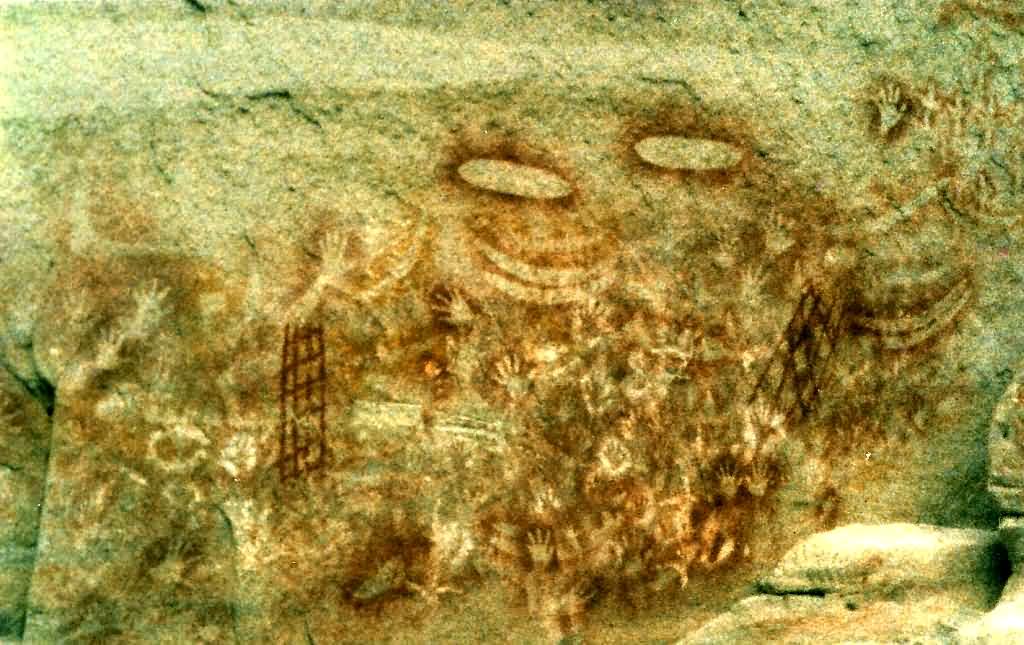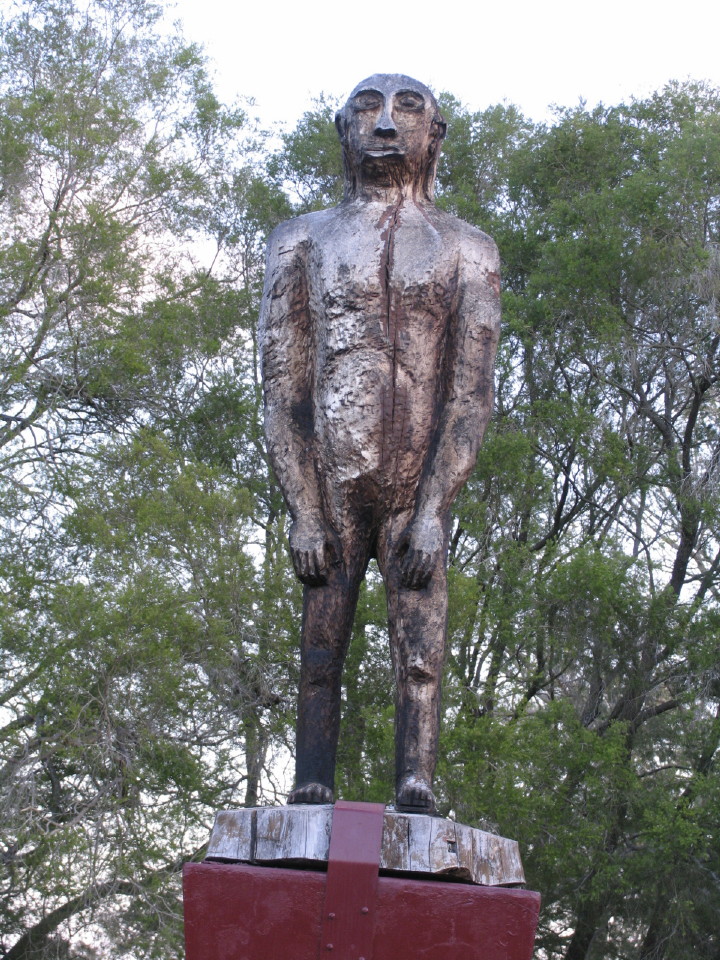Mythology of Australia on:
[Wikipedia]
[Google]
[Amazon]
 The beginnings of Australian mythology center on the Aboriginal belief system known as
The beginnings of Australian mythology center on the Aboriginal belief system known as

Australian
Australian(s) may refer to:
Australia
* Australia, a country
* Australians, citizens of the Commonwealth of Australia
** European Australians
** Anglo-Celtic Australians, Australians descended principally from British colonists
** Aboriginal A ...
mythology
Myth is a folklore genre consisting of narratives that play a fundamental role in a society, such as foundational tales or origin myths. Since "myth" is widely used to imply that a story is not objectively true, the identification of a narra ...
stems largely from Europeans who colonised the country from 1788, subsequent domestic innovation, as well as other immigrant and Indigenous Australian
Indigenous Australians or Australian First Nations are people with familial heritage from, and membership in, the ethnic groups that lived in Australia before British colonisation. They consist of two distinct groups: the Aboriginal peoples ...
traditions, many of which relate to Dreamtime
The Dreaming, also referred to as Dreamtime, is a term devised by early anthropologists to refer to a religio-cultural worldview attributed to Australian Aboriginal beliefs. It was originally used by Francis Gillen, quickly adopted by his co ...
stories. Australian mythology survives through a combination of word of mouth, historical accounts and the continued practice and belief in Dreamtime within Aboriginal communities.
Dreamtime
 The beginnings of Australian mythology center on the Aboriginal belief system known as
The beginnings of Australian mythology center on the Aboriginal belief system known as Dreamtime
The Dreaming, also referred to as Dreamtime, is a term devised by early anthropologists to refer to a religio-cultural worldview attributed to Australian Aboriginal beliefs. It was originally used by Francis Gillen, quickly adopted by his co ...
, which dates back as far as 65,000 years. Aboriginals believed Earth was created by spiritual beings who physically represented the land, sea, animals and people. 'Everything in the natural world is a symbolic footprint of the metaphysical beings whose actions created our world." Through practices such as storytelling, dance and art, Dreamtime provided the foundation for Aboriginal culture and spirituality.
Colonial myths and folklore
Since European settlement, Australian mythology shifted away from Dreamtime and focused more on the ideals of the average Australian worker. A strong central theme was rebellion, with stories of common heroes who "laugh in the face of adversity, face up to great difficulties and deliberately go against authority and the establishment". These figures were further romanticised during the Australian gold rushes, lovingly dubbed ''The Diggers'' by the public; who wrote songs, poetry and generally idealised them and their lives. This proved influential on a more mainstream level with soldiers serving in World War I also dubbed The Diggers, a name that still stands today.Bunyip
Bunyip
The bunyip is a creature from the aboriginal mythology of southeastern Australia, said to lurk in swamps, billabongs, creeks, riverbeds, and waterholes.
Name
The origin of the word ''bunyip'' has been traced to the Wemba-Wemba or Wergaia ...
is a large mythical creature from Aboriginal mythology which is said to lurk in swamps or billabong
Billabong ( ) is an Australian term for an oxbow lake, an isolated pond left behind after a river changes course. Billabongs are usually formed when the path of a creek or river changes, leaving the former branch with a dead end. As a result ...
s and eat people from the shoreline. While descriptions vary, the creature is said to be a reptilian marsupial hybrid, with sizes comparable to "a large dog", and displays of violent, territorial behavior. Mythology consistently names swamps and rivers as the preferred home of the Bunyip, stating that settlement over the years disrupted the creature, causing it to attack locals. Witnesses would claim the creature often "preferred" to attack women and children.
Drop Bear
Drop Bear
The drop bear (sometimes dropbear) is a hoax in contemporary Australian folklore featuring a predatory, carnivorous version of the koala. This imaginary animal is commonly spoken about in tall tales designed to scare tourists. While koalas are t ...
is a mythical Australian marsupial from Australian mythology which stemmed from Europeans. Drop Bears are said to be large, carnivorous koalas that inhabit tree tops and attack their prey by dropping on their heads from above. The myth is often considered humorous by Australians, who simply exaggerate the behavioral traits of koalas which are typically passive creatures.
Yowie
Yowie
Yowie is one of several names for an Australian folklore entity that is reputed to live in the Outback. The creature has its roots in Aboriginal oral history. In parts of Queensland, they are known as ''quinkin'' (or as a type of quinkin), an ...
is a mythical/cryptid hominid purported to live in the Australian wilderness. The creature stems from both European/Aboriginal mythology. Described as "long, narrow" humanlike creatures, the Yowies were said to be territorial and primitive in nature. In some cases, the Yowies were cannibals, hunting and feasting on human victims caught in their elaborate traps. The legend garnered mainstream public attention in the 1990s, when confectionery company Cadbury created chocolates associated with the mythology. Six characters were created, all human-marsupial hybrids. Related merchandising, such as magazines, centered on endangered species and caring for the environment.
See also
*Australian Aboriginal mythology
Australian Aboriginal religion and mythology is the sacred spirituality represented in the stories performed by Aboriginal Australians within each of the language groups across Australia in their ceremonies. Aboriginal spirituality includes ...
* Australian folklore
Australian folklore refers to the folklore and urban legends that have evolved in Australia from Aboriginal Australian myths to colonial and contemporary folklore including people, places and events, that have played part in shaping the culture, ...
* Culture of Australia
The culture of Australia is primarily a Western culture, originally derived from Britain but also influenced by the unique geography of Australia and the cultural input of Aboriginal, Torres Strait Islander and other Australian people. The Br ...
* Dreamtime
The Dreaming, also referred to as Dreamtime, is a term devised by early anthropologists to refer to a religio-cultural worldview attributed to Australian Aboriginal beliefs. It was originally used by Francis Gillen, quickly adopted by his co ...
References
External links
{{Authority control Australian mythology